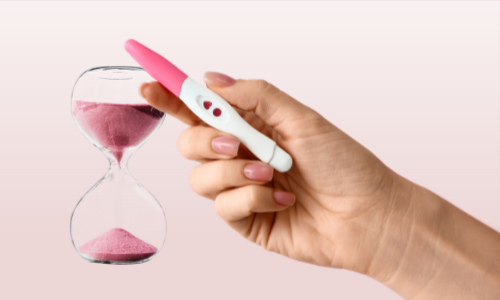


These days, many couples choose to put off having children until later in life, when they’re more established in their relationships and careers. But how long can you wait, and are there downsides to starting your family at an older age?
Your chances of getting pregnant are reduced as you get older. Although fertility declines for both men and women as they age, this happens much more sharply for women. Women not only have fewer eggs as they get older, but the quality of the remaining eggs also declines.
Remember that age is not the only thing that may affect your fertility, Smoking, alcohol, and obesity can also have an impact on your ability to get pregnant.
Age and eggs
Women are born with all the eggs they’ll ever have, known as their egg count or “ovarian reserve.” The quantity and quality of your eggs — as well as how well the ovarian follicles are responding to hormonal signals from your brain — is referred to as the ovarian reserve, and it is an indicator of a woman’s fertility. Many women don’t realize that their fertility begins to decline as early as their late 20s. A healthy 30-year-old woman has a 20 percent chance per month to get pregnant. A healthy 40-year-old woman has only a 5 percent chance of getting pregnant per month.
As women age, they have fewer eggs remaining in their ovarian reserve. Additionally, the eggs that remain are more likely to contain DNA that’s been naturally damaged over time—and that damage can prevent them from fertilizing and resulting in a healthy pregnancy and the eggs that you ovulate are more likely to have genetic abnormalities.
Age and sperm
Men younger than 40 have a better chance of fathering a child than those older than 40. The quality of the sperm men produce seems to decline as they get older.
Most men make millions of new sperm every day, but men older than 40 have fewer healthy sperm than younger men. The amount of semen (the fluid that contains sperm) and sperm motility (ability to move towards an egg) decrease continually between the ages of 20 and 80 affecting a man’s fertility. Some research suggests that women who become pregnant by older men have a slightly higher risk of miscarriage.
Increasing male age reduces the overall chances of pregnancy and increases time to pregnancy (the number of menstrual cycles it takes to become pregnant) and the risk of miscarriage and fetal death.
Children of fathers aged 40 or over are 5 times more likely to develop an autism spectrum disorder than children of fathers aged 30 or less. They also have a slightly increased risk of developing schizophrenia, other mental health disorders later in life, and new (not inherited) genetic abnormalities in children.
– Assisted Reproductive Technologies
If a cause for infertility is identified, the clinical care provider may suggest a specific treatment. However, sometimes no specific problem is found, and the infertility is labeled as “unexplained.” With unexplained infertility, or when traditional treatments have failed, advanced infertility therapies such as superovulation with timed intrauterine insemination (IUI) or in vitro fertilization (IVF) may be suggested.
-Preimplantation Genetic Screening
This technology will allow the testing of embryos for chromosomal abnormalities. It applies to embryos created during a cycle of IVF. It may be particularly useful for older women. With preimplantation genetic diagnosis (PGD), a small number of cells are removed from each embryo and genetically evaluated. Embryos for transfer to the mother’s uterus would be selected from the chromosomally normal embryos.
– Egg Freezing
You might want to consider freezing your eggs. First, you’ll take hormones to stimulate egg production. Then the eggs will be retrieved and frozen. They can stay frozen for several years. When you’re ready to use them, the eggs will be thawed and injected with sperm to be fertilized. The resulting embryos will then be implanted in your uterus. Freezing your eggs can ensure that healthy eggs are available to you when you’re ready.
-Sperm Freezing
It is the most successful method of preserving a man’s fertility so he can try and have a child(ren) at a later date.
Men may store their sperm from natural ejaculate, TESA, or MicroTESE, even if they have reduced sperm parameters.
The Steps Involved In Sperm Freezing are: Semen Collection, Semen Analysis to see how many cells it contains (sperm count), what percentage of them are able to swim (motility) and how many have a normal shape (morphology), then the sperm cells are frozen using Vitrification and stored for future use, That’s after the sperm is thawed and used to fertilize your wife’s eggs in an IUI or IVF-ICSI Cycle.